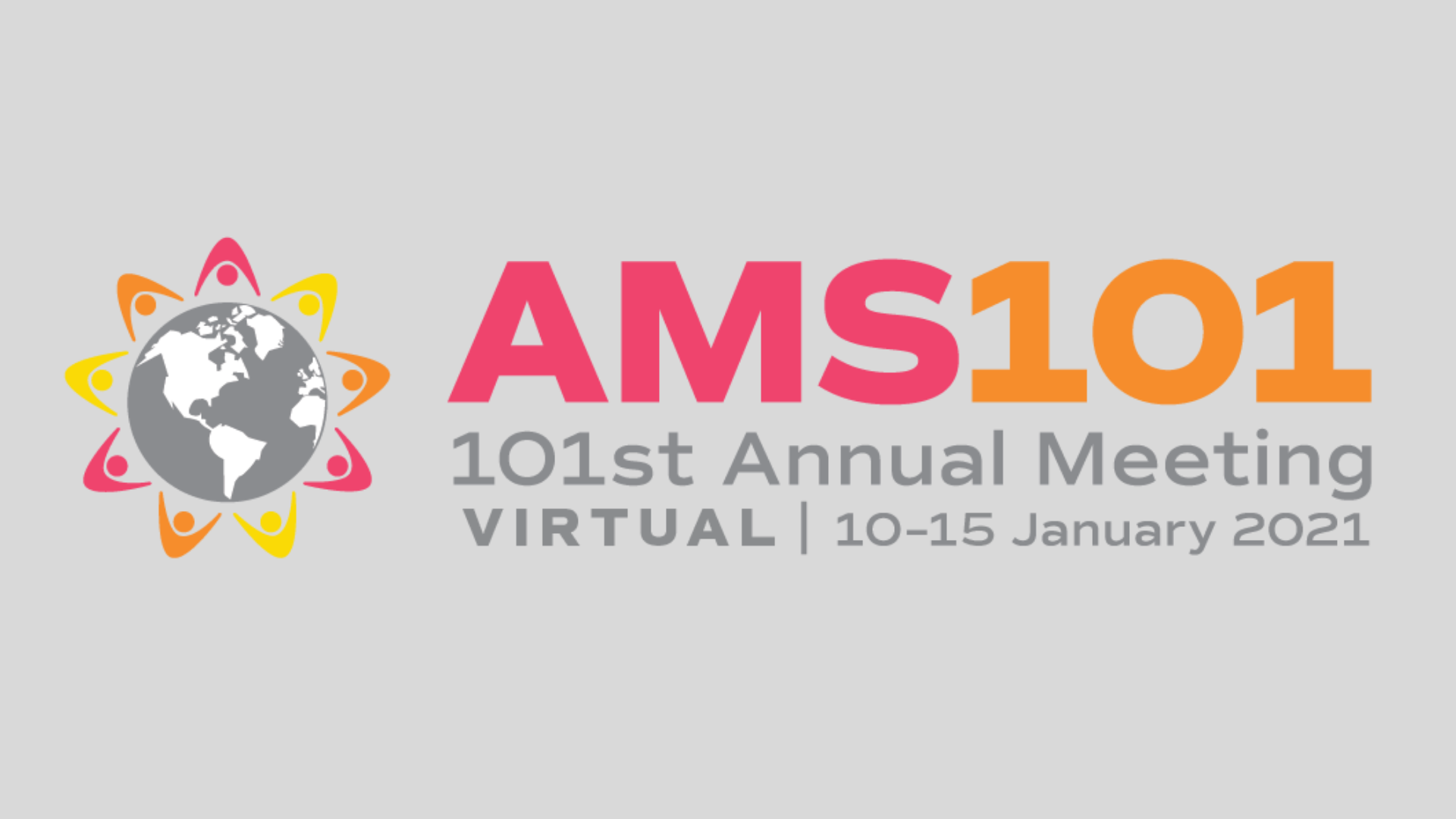CASC Participation in the 2021 American Meteorological Society Annual Meeting

The 101st American Meteorological Society Annual meeting will be held virtually from January 10-15, 2021. The theme of this year’s meeting is “Strengthening Engagement with Communities through Our Science and Services.” Southeast CASC Assistant University Director, Aranzazu Lascurain, in collaboration with Emma Kuster, Assistant University Director of the South Central CASC and Susan Jasco, Senior Research Scientist at the University of Alabama, have organized a session that strongly aligns with this year’s meeting theme. Session presentations include talks by Steph Courtney, discussing SE CASC project, Best Practices for Project Design: Effectively Addressing Natural Resource Management Needs, and Jen Cartwright, discussing SE CASC project, Clarifying Science Needs for Southeastern Grasslands.
View more information for these and other presentations in their session, Making Climate Science Actionable for Conservation Applications: Lessons Learned from the Climate Adaptation Science Centers, on the AMS Conference website here.

Session Title: Making Climate Science Actionable for Conservation Applications: Lessons Learned from the Climate Adaptation Science Centers
Date: Monday, January 11, 2021
Time: 3:30 PM – 4:30 PM EST
Session Description: “This session focuses on a wide range of efforts from across the Weather Enterprise to more fully engage with local communities, including citizen science, partnering with civic and other local organizations, building interdisciplinary teams, attending public meetings, volunteering to serve as a content area expert, or other means of adapting scientific knowledge to the needs and constraints of communities or vulnerable populations within communities.” & “For climate science to be relevant in real-world decision making, scientists must understand the decisions being made by stakeholders and be willing to have a dialog about the stakeholder’s needs and what can feasibly be addressed by science. By incorporating a dialog between scientists and stakeholders, up front, into the formation of research projects, climate science inherently becomes more actionable. Unfortunately, such dialog has not always been at the forefront of scientists’ minds. All too often we hear of stories where scientists and stakeholders are not talking to each other and tools get developed but are rarely used. The Climate Adaptation Science Center (CASC) network was established in 2010 to conduct actionable science, ideally co-produced, with natural and cultural resource managers across the United States. We include stakeholders in the science process to develop projects that assist them in preparing for and adapting to climate change, especially when the objective is to answer a decision-focused conservation challenge. Over the past 10 years, our network has learned valuable lessons about how to engage with stakeholders in the scientific process. Since there is no one size fits all solution to the challenge of climate change, the CASC network was designed as a regional network to most effectively address local and regional climate impacts. In this session, we plan to highlight some of the great work conducted by interdisciplinary and multi-institutional teams throughout the Climate Adaptation Science Center network and share our lessons learned with the larger scientific community.”
Session Co-Chairs:
- Susan Jasko (University of Alabama)
- Emma Kuster (South Central Climate Adaptation Science Center, Univ. of Oklahoma)
- Aranzazu Lascurain (Southeast Climate Adaptation Science Center, North Carolina State Univ.)

- Categories: